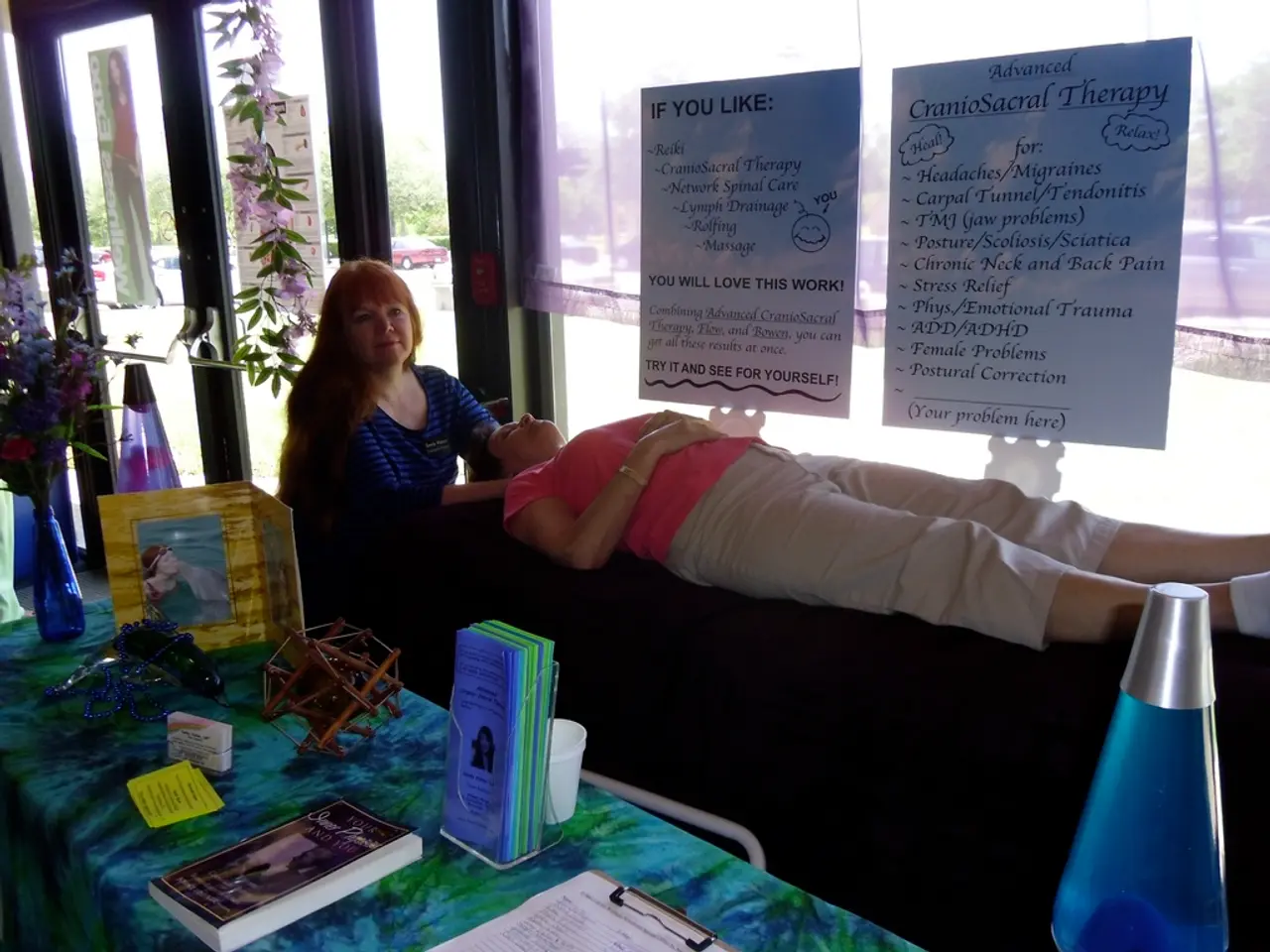Strategies for Managing Depression in Adulthood When Unattached and Beyond Age 25
Raffaello Antonino, a counseling psychologist in the United Kingdom, urges individuals not to rely solely on finding a romantic relationship as a means to manage Major Depressive Disorder (MDD).
Recent research suggests that being in a stable, supportive relationship is associated with lower levels of depression, while single or recently separated/divorced individuals may be at higher risk for depressive symptoms. However, the relationship between depression and relationship status is complex and may depend on the quality of the relationship.
Ileana Arganda-Stevens, a licensed marriage and family therapist, emphasises that depression can lead to feelings of low self-concept. She advises that it's important to remember that connection takes many forms beyond romantic relationships. Connection with non-romantic relationships can help manage symptoms of depression.
Practicing self-care, including nutritious eating, exercise, and quality rest, is crucial for managing MDD as physical health can be closely linked to the severity of the condition. Depression can be an overwhelming condition to manage, but focusing on small steps and setting achievable goals can give a sense of accomplishment and help in the path to wellness.
Following a treatment plan with a mental health professional can be an essential part of managing MDD. Research has shown that a long-term relationship can be connected to lower rates of depression, but it's important to note that the relationship between depression and relationship status is complex and may depend on the quality of the relationship.
Good relationships can protect against depression, but bad relationships may make depression worse. Connecting with others, such as friends, family, acquaintances, mental health professionals, or others with MDD, can help reduce feelings of isolation and manage symptoms. Joining online and in-person support groups can provide a way to manage particularly tough times and meet others with similar experiences who have developed ways to cope.
It's worth noting that MDD is a chronic condition that can cause feelings of sadness, tiredness, loss of interest in activities, concentration problems, trouble sleeping, and appetite changes. Alcohol and nonprescription medication use can make symptoms of MDD worse.
If symptoms improve, continue with any prescribed medication as stopping them abruptly can lead to withdrawal or a recurrence of symptoms. Prior research does not clearly show whether depression status was set before a relationship or changed after entering one.
For those seeking support resources, Psych Central's Find Help page can provide suggestions. If immediate help is needed, call the Lifeline at 988. Taking a day-by-day approach to reducing stress and prioritizing health can be beneficial when living with MDD. Practices such as yoga, meditation, and tai chi can help, but any kind of movement can be a win.
Read also:
- Peptide YY (PYY): Exploring its Role in Appetite Suppression, Intestinal Health, and Cognitive Links
- Toddler Health: Rotavirus Signs, Origins, and Potential Complications
- Digestive issues and heart discomfort: Root causes and associated health conditions
- House Infernos: Deadly Hazards Surpassing the Flames








